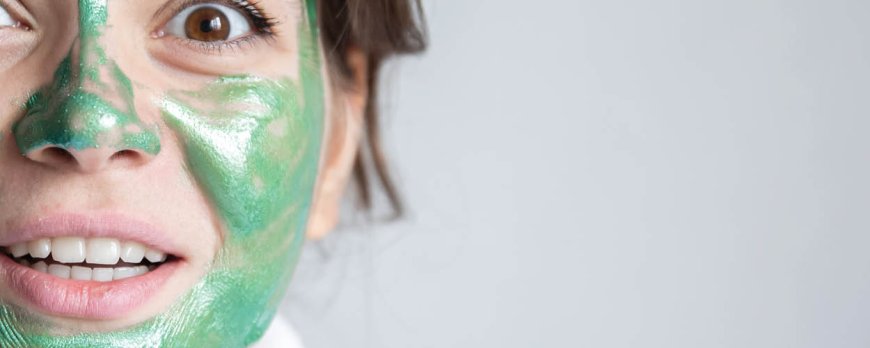What can make acne worse?
Explore 'What can make acne worse?' Here's a deep dive into what may exacerbate acne, including lifestyle habits and environmental factors.
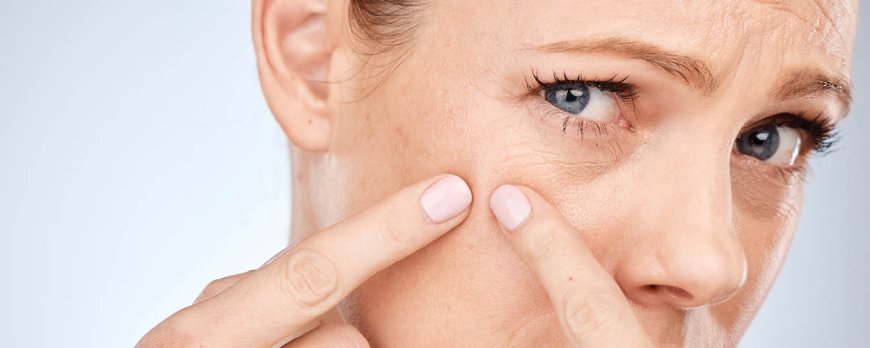
What can make acne worse?
Acne can be a frustrating condition, and understanding what can make it worse is essential for effective management. There are several daily habits and environmental factors that can contribute to acne worsening, exacerbating breakouts and prolonging the healing process. By identifying and avoiding these factors, individuals can take proactive steps towards clearer, healthier skin.
Key Takeaways:
- Not cleaning your phone regularly can contribute to acne worsening.
- Using certain hair products can trigger acne breakouts.
- Incorrect face washing techniques, such as washing too often or incorrectly, can worsen acne.
- Popping pimples can lead to acne worsening and potential scarring.
- Excessive use of acne medication can actually worsen breakouts.
Lifestyle habits that worsen acne
Certain habits in our daily lives can inadvertently aggravate acne breakouts. Understanding these habits and making changes to our lifestyle choices can help improve our skin's condition. Here are some common habits that can contribute to worsening acne:
- Not cleaning your phone: Our smartphones are breeding grounds for bacteria, and when we constantly touch our phones and press them against our face, it can transfer dirt and oil, leading to clogged pores and breakouts. Regularly cleaning your phone with alcohol wipes can help minimize this risk.
- Using certain hair products: Hair products like gels, mousses, and oils can contain ingredients that can clog pores and irritate the skin. When these products come into contact with the face, they can exacerbate acne breakouts. Opt for hair products that are labeled "non-comedogenic" or "oil-free" to reduce the likelihood of pore clogging.
- Incorrect face washing techniques: Over-washing the face or using harsh cleansers can strip the skin of its natural oils, leading to increased oil production and potential breakouts. It's important to wash your face gently with a mild cleanser twice a day and avoid scrubbing vigorously.
In addition to these habits, popping pimples, using excessive acne medication, and not using the right skincare products and makeup can also worsen acne. It's crucial to be mindful of our daily habits and make changes where necessary. By embracing a proper skincare routine and avoiding these habits, we can help prevent the exacerbation of acne and achieve clearer, healthier-looking skin.
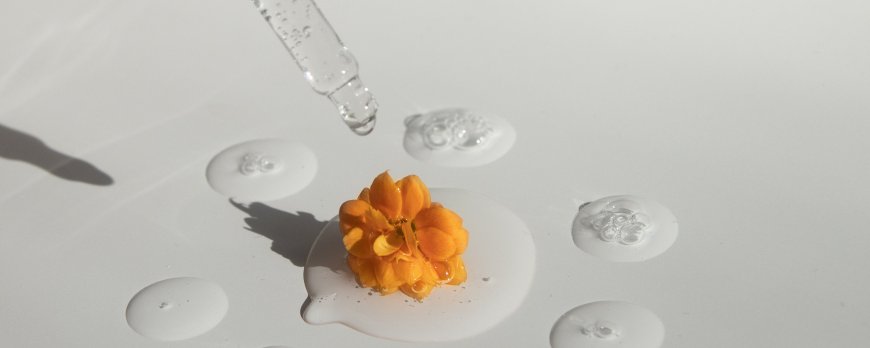
Environmental Factors that Worsen Acne
Apart from lifestyle habits, environmental factors can also play a role in worsening acne. Certain triggers in our surroundings can contribute to the deterioration of acne-prone skin. It's important to be mindful of these factors and take steps to minimize their impact on your skin.
Pollution
Living in urban areas with high levels of pollution can have a detrimental effect on your skin. Air pollution, including particulate matter and toxic gases, can clog pores and lead to increased breakouts. To protect your skin, consider using a daily cleanser with purifying ingredients and antioxidants that help remove pollutants and neutralize their damaging effects.
Climate Conditions
The climate you live in can also impact your skin's health. Extreme temperatures, high humidity, and excessive dryness can all contribute to acne worsening. In hot and humid weather, sweat and excess oil can mix with dirt and bacteria, leading to more clogged pores. Similarly, cold and dry environments can dehydrate the skin and disrupt its natural barrier, making it more susceptible to breakouts. It's important to adapt your skincare routine and choose products that provide adequate hydration and protection based on the climate you're in.
UV Radiation
Excessive sun exposure can aggravate acne, as UV radiation can increase inflammation and trigger the production of sebum, leading to more frequent breakouts. Additionally, some acne medications can make your skin more sensitive to sunlight, making proper sun protection crucial. Always wear a broad-spectrum sunscreen with an SPF of at least 30 and seek shade during peak sun hours to prevent UV damage and minimize acne exacerbation.
By being aware of these environmental factors and incorporating appropriate measures into your skincare routine, you can minimize the impact they have on your acne-prone skin. Remember, consistent and proper care is essential for managing and preventing worsening acne.
Not cleaning your phone
Did you know that your phone could be a breeding ground for acne-causing bacteria? Our phones go everywhere with us, collecting dirt, oil, and bacteria along the way. When we hold our phones against our faces during calls, that bacteria can transfer onto our skin and contribute to acne breakouts.
To prevent this, it's important to regularly clean your phone. Wipe it down with an alcohol-based disinfectant or use disinfecting wipes to remove any bacteria buildup. Another option is to use a hands-free device like headphones or a Bluetooth earpiece to minimize contact between your phone and your face.
By taking these simple steps, you can help reduce the risk of acne exacerbation caused by the bacteria on your phone. Remember, maintaining a clean phone is just one part of a comprehensive skincare routine to prevent worsening acne. Combine it with other healthy habits to keep your skin clear and blemish-free.
Using Certain Hair Products
Your hair products might be the culprit behind your persistent acne. It's important to pay attention to the ingredients in your hair products, as some of them can contribute to clogged pores and breakouts. Here are some factors to consider:
- Oil-based products: Hair oils and serums that contain heavy oils can easily transfer onto your forehead and face, leading to clogged pores and acne. Look for lightweight or oil-free alternatives.
- Styling products with silicones: Silicones are commonly found in hair sprays, gels, and mousses. While they can make your hair look shiny and smooth, they can also create a film on your skin, trapping dirt and bacteria that can lead to breakouts. Opt for silicone-free products.
- Fragrances and dyes: These additives can irritate the skin and trigger acne flare-ups. Choose hair products that are fragrance-free or labeled as suitable for sensitive skin.
- Overuse of dry shampoo: Dry shampoo can be a lifesaver for oily hair, but excessive use can lead to product buildup on the scalp, clogging hair follicles and causing acne. Use dry shampoo sparingly and make sure to wash your hair regularly.
To prevent hair products from worsening your acne, consider keeping your hair away from your face, especially when applying products. It's also important to cleanse your face and neck thoroughly after using hair products to remove any residue. If you continue to experience acne despite making changes to your hair products, consult a dermatologist for further guidance.
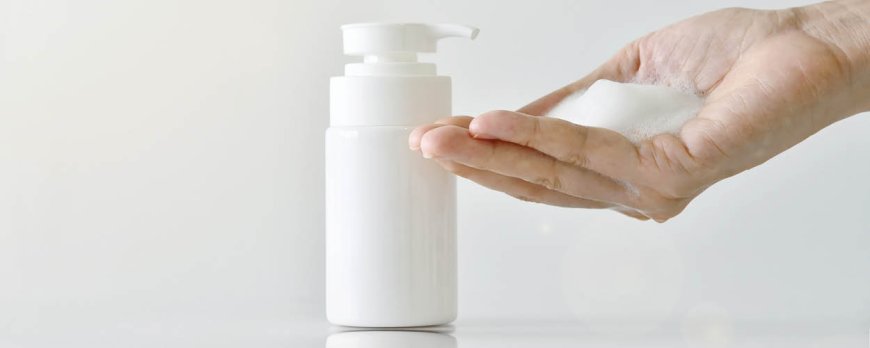
Incorrect Face Washing Techniques
While washing your face is important, incorrect techniques can actually do more harm than good for your acne. Here are some common mistakes to avoid:
- Over-washing: Washing your face too often can strip away essential oils and disrupt the skin's natural balance. Stick to washing your face twice a day, in the morning and before bed.
- Using harsh cleansers: Opt for gentle cleansers that are specifically formulated for acne-prone skin. Harsh cleansers can strip the skin of moisture and exacerbate acne.
- Scrubbing vigorously: Scrubbing your face vigorously with a washcloth or brush can irritate the skin and worsen acne. Instead, use gentle circular motions with your fingertips.
- Not rinsing properly: Make sure to thoroughly rinse your face with lukewarm water after cleansing to remove all traces of cleanser. Residue left on the skin can clog pores and lead to breakouts.
Remember, proper face washing techniques can help keep your skin clean and prevent acne breakouts. It's important to be gentle and use products that are suitable for your skin type. If you're unsure about the best skincare routine for your acne, consult with a dermatologist for personalized advice.
Popping pimples
As tempting as it may be, popping your pimples can have detrimental effects on your acne condition. While it may seem like a quick way to get rid of the unsightly bumps, popping pimples can actually worsen the inflammation and lead to more breakouts. Here are a few reasons why you should resist the urge to pop your pimples:
- Increased inflammation: Popping a pimple can cause the bacteria and sebum to spread to surrounding pores, leading to more inflammation and redness.
- Scarring: Squeezing or picking at a pimple can damage the skin tissue, resulting in the formation of scars that can be difficult to fade.
- Infection risk: When you pop a pimple with your fingers or unsterilized tools, you introduce bacteria into the open wound, increasing the risk of infection.
Instead of popping your pimples, it's best to allow them to heal naturally. You can help accelerate the healing process by practicing good skincare habits, such as keeping your face clean, using acne-fighting products, and avoiding excessive touching of your face. If you're concerned about the appearance of your pimples, consider using concealing makeup or seeking advice from a dermatologist for proper treatment options.
Excessive use of medication
Overusing acne medication may seem like a quick fix, but it can actually make matters worse for your skin. While it's understandable to want to eradicate acne as quickly as possible, using too much medication can lead to dryness, irritation, and even more breakouts. It's important to follow your dermatologist's instructions and use acne medications as directed.
Here are some factors to consider:
- Proper dosage: Using more than the recommended amount of acne medication won't speed up the healing process. Stick to the prescribed dosage to avoid potential side effects.
- Frequent switching: Changing medications too frequently can disrupt your skin's balance and exacerbate acne. It's important to give each treatment enough time to work before trying something new.
- Drying out the skin: Some acne medications can be drying, especially when used excessively. Moisturize your skin to prevent dryness and irritation from worsening your acne.
Remember, using acne medication is about finding the right balance. It's always best to consult with a dermatologist who can provide personalized recommendations based on your skin type and specific needs.
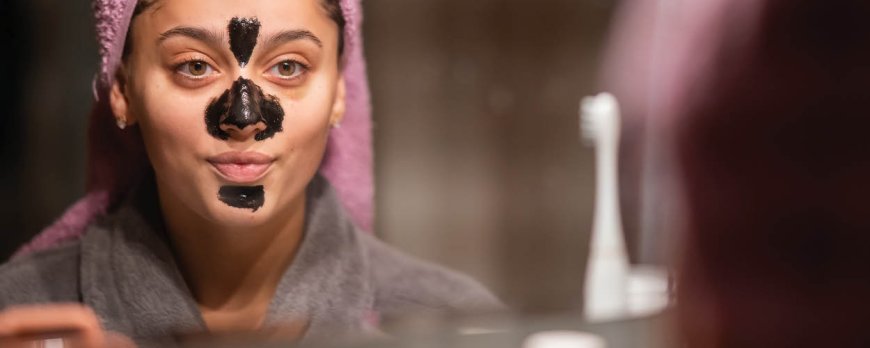
Makeup and Skincare Mistakes
Your makeup and skincare routine may be inadvertently contributing to your acne woes. It is important to be aware of common mistakes that can worsen your skin condition and take steps to avoid them. Here are some habits that make acne worse and factors that worsen acne when it comes to makeup and skincare:
- Not using the right skincare products: Using products that are not suitable for your skin type or that contain harsh ingredients can irritate your skin and clog your pores, leading to breakouts. Make sure to choose non-comedogenic and oil-free products that are specifically designed for acne-prone skin.
- Not cleansing your skin after sweating: Sweat can mix with dirt and bacteria on your skin, creating a breeding ground for acne-causing bacteria. Make sure to cleanse your face and other areas prone to breakouts after exercising or sweating profusely.
- Sleeping with makeup on: Leaving makeup on overnight can clog your pores and prevent your skin from breathing, increasing the risk of acne breakouts. Always remove your makeup before going to bed using a gentle cleanser or makeup remover.
- Sharing makeup and makeup brushes: Sharing makeup or brushes can transfer bacteria and oil from one person to another, leading to cross-contamination and breakouts. It is essential to use your own makeup and regularly clean your brushes to prevent acne-causing bacteria from accumulating.
- Drying out your skin: Overusing acne products or using harsh toners and astringents can strip your skin of its natural oils, causing it to produce more oil to compensate. This can lead to clogged pores and increased acne. Opt for gentle and hydrating skincare products to maintain a balanced and healthy complexion.
By avoiding these makeup and skincare mistakes, you can help improve your acne-prone skin. Remember to choose the right products for your skin type, cleanse your skin after sweating, remove your makeup before bed, avoid sharing makeup and brushes, and maintain a balanced skincare routine. Consulting with a dermatologist can also provide personalized advice and recommendations for managing your acne effectively.
Dietary Factors
While diet alone may not be the sole cause of acne, it can certainly influence its severity. Certain dietary factors can exacerbate acne breakouts, so it's important to be mindful of what you eat. Here are some habits that can make acne worse:
- Eating too much sugar: Consuming excessive amounts of sugar can lead to increased inflammation in the body, which can manifest as acne on the skin.
- Consuming high-carbohydrate foods: Foods like white bread, pasta, and pastries can cause a rapid increase in blood sugar levels, leading to hormonal imbalances that can trigger acne.
- Not getting enough nutrients: A diet lacking in essential nutrients can weaken the immune system and impair the body's ability to fight off acne-causing bacteria.
- Excessive dairy consumption: Some studies suggest that dairy products, particularly those with high levels of hormones, may contribute to acne breakouts.
- Skipping meals: Irregular eating patterns and skipping meals can disrupt hormone levels and increase the likelihood of acne flare-ups.
It's important to note that everyone's body is different, and what may aggravate one person's acne may not have the same effect on another. However, making dietary changes such as reducing your sugar and carbohydrate intake while ensuring you're getting a balanced diet with essential nutrients can be beneficial for managing acne.
Remember, maintaining a healthy lifestyle and following a proper skincare routine in addition to being mindful of your diet can help prevent worsening acne. If you're struggling with persistent acne, it's always a good idea to consult with a dermatologist who can provide personalized advice and treatment options tailored to your specific needs.
Conclusion
Understanding the factors that can worsen acne is crucial for effectively managing and improving the condition of your skin. There are several daily habits and environmental factors that can contribute to acne breakouts.
Firstly, not cleaning your phone regularly can transfer bacteria and oils onto your skin, leading to clogged pores and acne. Additionally, using certain hair products that contain oils and chemicals can also aggravate acne by clogging pores on the face.
Furthermore, incorrect face washing techniques, such as washing too often or using harsh products, can strip the skin of its natural oils and disrupt its balance, leading to increased oil production and breakouts. Popping pimples can also worsen acne, as it can spread bacteria, cause further inflammation, and even result in scarring.
Excessive use of acne medication, especially without professional guidance, can have adverse effects on the skin, including drying it out or irritating it further. Similarly, using makeup and skincare products that are not suitable for your skin type or are expired can clog pores and contribute to breakouts.
In addition, dietary factors can also play a role in acne exacerbation. Consuming excessive amounts of sugar and carbohydrates can lead to hormonal fluctuations and inflammation, both of which can worsen acne.
To prevent worsening acne, it is important to adopt good skincare habits, such as cleansing your skin after sweating, washing your hair regularly to prevent transfer of hair products onto your face, and using non-comedogenic skincare and makeup products. Additionally, maintaining a balanced diet and avoiding excessive consumption of sugar and carbohydrates can also help improve your skin's condition.
By being mindful of these habits and making necessary changes, you can effectively manage and prevent the worsening of acne, promoting clearer and healthier skin.
FAQ
What can make acne worse?
There are several daily habits that can make acne worse. These include not cleaning your phone, using certain hair products, washing your face too often or incorrectly, popping pimples, using too much medication, changing medications too frequently, drying out your skin, sleeping with makeup on, sharing makeup and makeup brushes, not using the right skincare products and makeup, not cleansing your skin after sweating, not washing your hair often enough, getting hair products on your face, and eating too much sugar and carbohydrates. It's important to avoid these habits and follow a proper skincare routine to prevent worsening acne.
How does not cleaning your phone worsen acne?
Not cleaning your phone regularly can contribute to acne worsening because the oils, bacteria, and dirt on your phone can transfer to your face when you make calls. This can clog your pores and lead to breakouts.
Can using certain hair products worsen acne?
Yes, using certain hair products can contribute to acne breakouts. Certain ingredients in hair products, such as oils and silicones, can clog your pores and irritate your skin, leading to acne flare-ups.
How can incorrect face washing techniques worsen acne?
Washing your face too often or incorrectly can actually worsen acne. Overwashing can strip your skin of its natural oils, causing it to produce more oil to compensate. Using harsh cleansers or scrubbing your face too vigorously can also irritate your skin and lead to breakouts.
Why is popping pimples bad for acne?
Popping pimples can lead to acne worsening and potential scarring. It can cause the bacteria and pus inside the pimple to spread to surrounding pores, leading to more breakouts. Additionally, popping pimples can damage the skin, resulting in scars or dark spots.
Can excessive use of medication worsen acne?
Yes, using too much acne medication can actually worsen breakouts. Overusing certain medications, such as benzoyl peroxide or salicylic acid, can dry out your skin excessively, leading to irritation and more acne. It's important to follow the recommended usage instructions and consult with a dermatologist if you have concerns.
How can makeup and skincare mistakes aggravate acne?
Common mistakes with makeup and skincare can exacerbate acne. Using heavy or oily makeup can clog your pores and lead to breakouts. Sharing makeup and makeup brushes can also transfer bacteria, increasing the risk of acne. Not using the right skincare products for your skin type or not properly cleansing your skin after sweating can further contribute to acne worsening.
Can dietary factors affect acne?
Yes, certain dietary factors can impact acne severity. Consuming too much sugar and carbohydrates can cause spikes in insulin levels, leading to increased oil production and inflammation in the skin. This can contribute to acne breakouts. It's important to maintain a balanced diet and limit the consumption of sugary and processed foods.
